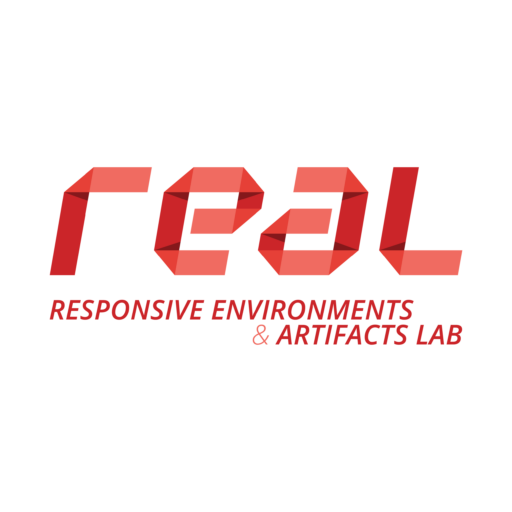Courses
Current Courses
Thu 10:30 AM – 1:15 PM
Department of Architecture
Project-based Seminar
4 credits
Responsive Environments
Instructor: Allen Sayegh
The course introduces students to the tools and design methods for creating responsive environments and technologically driven experiences in the built environment. By putting the human experience at the center and forefront, from the immediate body scale to the larger environment, encompassing buildings and the urban spaces, the course examines new and emerging models and technologies for the design of innovative architectural human interfaces and technologically augmented physical environments.
The class addresses fundamental questions including: What are new and emergent ways of understanding the digital and physical environments? How can we create responsive and interactive experiences that augment the person’s experience of the physical space? What are the consequences of creating technologically augmented environments? What are the psychological, social, and environmental implications of creating such hybrids? And what are the criteria to measure successful responsive environments?
These questions of analyzing, understanding and designing responsive environments will be tackled through both class discussions and also hands-on designing and prototyping of interactive, responsive installations. Readings and discussions will explore current and historical examples, theories of phenomenology, psychogeography, multisensory experience of architecture, body-centricity, proxemics, interaction design, installation design, and human-machine interface. Informed by this discourse, the first part of the course will engage students in measuring and quantifying the ephemeral and invisible qualities of space and human experience of space. This will form the foundation for students to design spatial and interactive interventions at various scales, ranging from wearables, interactive objects, to large-scale architectural installations. In the process, students will become familiarized with technologies that can change and augment our physical environment such as biometric sensors, electronics, processing, projections, and others.
The course will culminate with an exhibition of the students’ responsive and interactive installations of varied scales using the tools and methods discussed in class. The course will take advantage of the resources and the ongoing research at the Responsive Environments and Artifacts Lab.
No specific prerequisites are needed. Students from any background and concentration are encouraged to apply to the lottery.
Mediums Domain students will be priotiized in the MDes Advanced Course Selection.
Tue, Thu 2:00 PM – 6:00 PM
Department of Architecture, Department of Landscape Architecture, Department of Urban Planning and Design
Advanced Research Seminar
8 credits
MDes Open Project: Perception as Agency
Instructor: Allen Sayegh
This Open Project investigates how emergent technologies manipulate perception and explores their capacity to influence societal and environmental systems. The class challenges students to rethink perception not as passive observation but as an active, malleable process that can shape behavior, culture, and ecological relationships.
Leveraging emergent technologies that blur the lines between real and synthetic, students will interrogate how “hacked” perceptions can reveal unseen societal dynamics and drive positive change.
Through context-specific projects, they will probe questions such as:
• How do synthetic realities shape collective action on environmental issues?
• What role can the altering of perception play in promoting inclusivity or equity in urban environments?
• How can immersive technologies foster deeper ecological awareness?
Outcomes will be in the form of immersive installations, AI-driven responsive systems, environmental simulations, or critical interventions addressing perceptual frameworks. Students will work collaboratively to create hybrid media explorations that reframe the intersection of humans, their environments, and their evolving senses of reality.
Department of Architecture, Department of Landscape Architecture, Department of Urban Planning and Design
Independent Study
4 credits
Independent Study by Candidates for Master’s Degrees
Instructors: Krzysztof Wodiczko, Li Hou, Rahul Mehrotra, Rosalea Monacella, Ann Forsyth, Malkit Shoshan, Ewa Harabasz, Magda Maaoui, Grace La, Carole Voulgaris, Diane Davis, John May, Karen Lee Bar-Sinai, Peter Rowe, Rachel Weber, Jonathan Grinham, Panagiotis Michalatos, Allen Sayegh
Students may take a maximum of 8 units with different GSD instructors in this course series. 9201 must be taken for either 2 or 4 units.
Prerequisites: GSD student seeking a Master’s degree
Candidates may arrange individual work focusing on subjects or issues that are of interest to them but are not available through regularly offered coursework. Students must submit an independent study petition, and accompanying documentation as noted on the petition, after securing approval of the faculty member sponsoring the study.
The independent study petition can be found on the Documents tab in my.Harvard. Enrollment will not be final until the petition is submitted.
